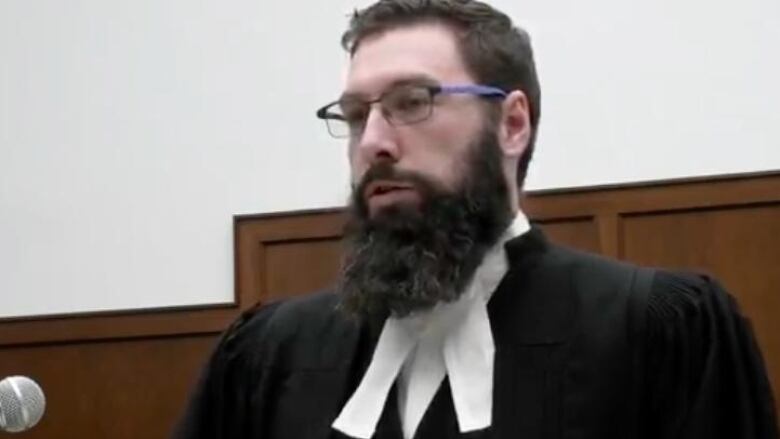Federal carbon tax will upset balance of power, UCP lawyer argues
Alberta's United Conservative Party was granted intervener status in Saskatchewan reference case

The federal carbon tax is unconstitutional and willimpede the ability ofprovinces to developtheir own solutions to deal with carbon emissions, a lawyer for the United Conservative Party told the Saskatchewan Court of Appeal Wednesday.
Ryan Martin, lawyer for Alberta's Official Opposition party, told the court that the Greenhouse Gas Pollution Pricing Act intrudes on how powers are divided between the federal and provincial governments underthe 1867 Constitution Act.
"It's the position of the United Conservative Association that allowing Canada to expand its constitutional powers at the expense of the provinces will upset the balance of federalism in Canada," Martin told the court.
He added that the measure "will prevent provinces like Alberta, Saskatchewan, New Brunswick, Ontario from developing and implementing their own policy solutions to the problem of greenhouse gas emissions that are unique to the individual and local concerns of those provinces."
The UCP is one of 16 interveners in the Saskatchewan government's reference to the province's highest court. The appeal court judges have been asked to determine the constitutionality of the federal government's tax, which comes into effect on April 1.
The measurewill affect New Brunswick, Ontario, Manitoba and Saskatchewan which do not have their ownprice on carbon.
Alberta's carbon tax first came into effect on Jan. 1, 2017.
Lawyers for the Saskatchewan government made their arguments at the start of the hearing Wednesday morning. Lawyers for the Government of Canada will make their submissions on Thursday.
In addition to the UCP, lawyers for Ontario and New Brunswick, the Canadian Taxpayers Federation, the Agricultural Producers Association of Saskatchewan, Saskatchewan Power Corporation and Sask Energy sided with Saskatchewan's position against the tax.
Another nine interveners are on the side of the federal government. They include the Athabasca Chipewyan First Nation and the Attorney General of British Columbia.
Lisa DeMarco, counsel for theInternational Emissions Trading Association (IETA), a non-profit organization created to establish an international framework for trading in greenhouse gas emission reductions,told court the IETAsupports both federal and provincial jurisdiction over greenhouse gas emissions and carbon pricing.
DeMarco said no issue needs cooperative federalism more than climate change. The act falls under the federal government's trade and commerce power, she said.
Not making the system equal across the country would create leakage and cause competitiveness issues, she added.
However, she said, the federal government cannot implement the act in a way that encroaches upon exclusive areas of provincial jurisdiction such as electricity or more stringent provincial carbon-pricing programs.
Corrections
- This story has been corrected to more accurately reflect the position and statements of the International Emissions Trading Association.Feb 14, 2019 9:42 AM MT












_(720p).jpg)


 OFFICIAL HD MUSIC VIDEO.jpg)
.jpg)



























































































